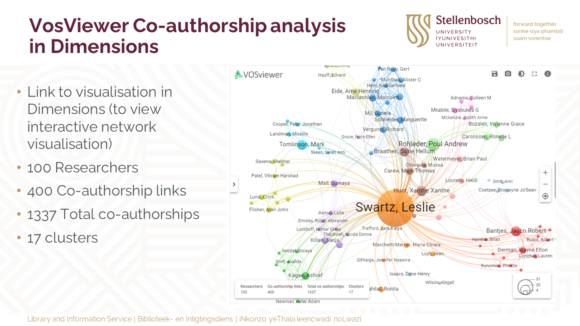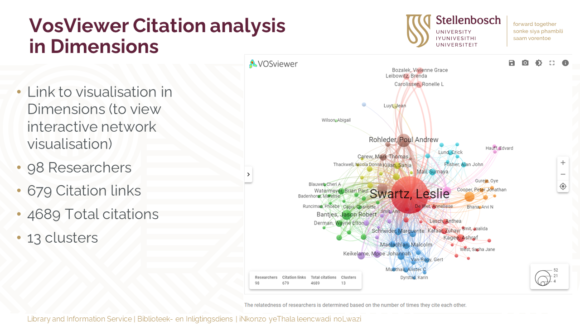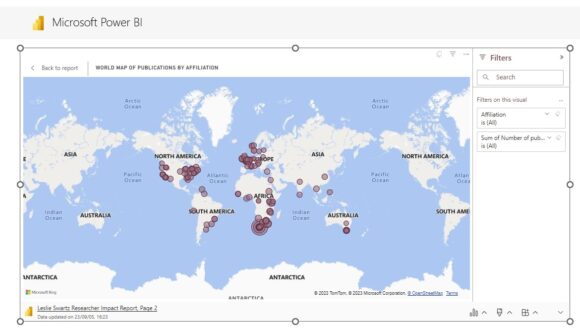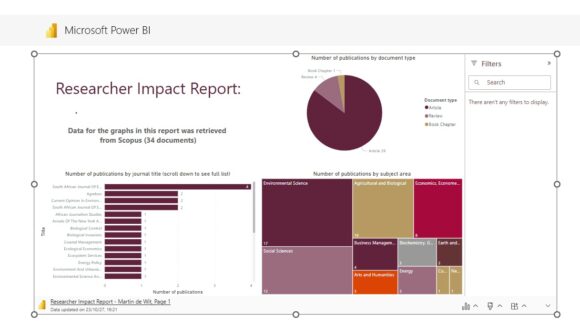Did you know you could request a full researcher impact report to showcase your impact? This report was developed to summarise the impact of your work as indexed by the following databases: Google Scholar, Scopus, Web of Science and Dimensions. It also gives you more in-depth information about the impact of your work from the database which indexes most of your publications. This information is visualised in a two-page PowerBi report.
The full researcher impact report is delivered in the format of Microsoft PowerPoint slides. Herewith are example pages of the report for you to see what it all is about:
This is a summarised page that includes all the important metrics, such as the number of your publications per year, per database; the H-Index from different databases, the M-Index, the G-Index and other indices; the number of citations per database; your top article in Altmetric Explorer (only 2 librarians have access to retrieve this Altmetric information); the top 2 highly cited articles, and more.

The second slide will include a VosViewer network visualisation that looks at co-authorship analysis. This is retrieved from the Dimensions database and will therefore only include data that is indexed by Dimensions.

The third slide also includes a VosViewer network visualisation, this time looking at citation analysis. This visualisation is also retrieved from the Dimensions database.

The next two slides are set up in a Microsoft PowerBi report and include interactive visualisations of all the important metrics related to your research output, from a specific database such as Scopus or Web of Science, depending on where most of your articles are indexed. Here all the data associated with the specific aspect is visualised, so you can scroll down and for example not see only your top 10 co-authors as visualised in the databases, but your full list of co-authors. The data we include in these visualisations are: Co-authors, journal titles in which you publish, publication types, your contribution to the SDGs, subject areas, your publications by affiliation (world map) and a list of funders.
Guidance on the responsible use of metrics, the methodology (links to your profiles on databases, etc) and a glossary of important terms are also included.
Request your report from your Faculty Librarian or contact Marié Roux to coordinate the request.
Visit our Research Impact library guide for more information.


Leave a Reply